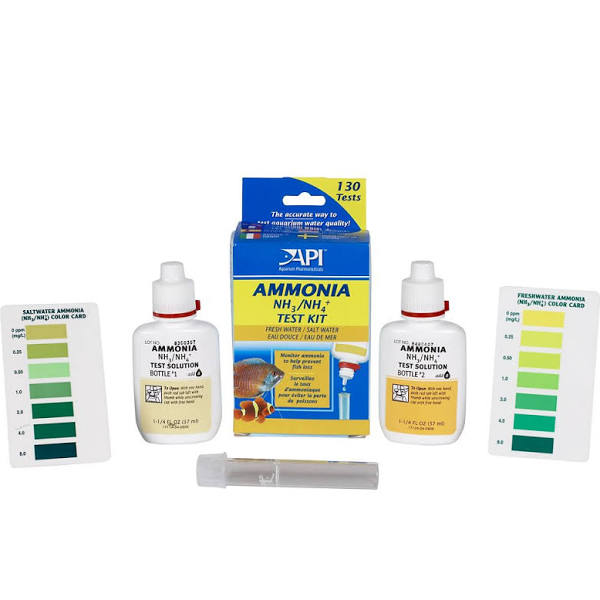
Before I go into detail, it is important to know that high ammonia and nitrite are normal in new aquariums. Although normal, they can be relieved faster with these tips as well. New aquariums should not be gravel vacuumed, emptied, or have filters changed or cleaned for the first two months, even if water is cloudy. This cloudiness is normal because beneficial bacteria has not cultured yet. That beneficial bacteria constantly eats away ammonia and nitrite that the fish produce. Ammonia and nitrite levels should always be 0 in an established aquarium.
If you have any ammonia or nitrite, it is very dangerous for the fish in your tank. In older aquariums, ammonia and nitrite spikes are caused by a number of things. These things include
- Overfeeding,
- Over cleaning (Too much gravel vacuum or cleaning filter and gravel together),
- Fish death
- Non aquarium safe cleaning products,
- Aquarium medications.
You should do a 50 percent water change without gravel vacuuming. This will help to preserve as much beneficial bacteria as possible. As an aside, you should always gravel vacuum your freshwater aquarium at least once a month. This will help to reduce the risk of sickness and diseases. You can add a bacteria additive like Quick Start to boost your good bacteria, and lower the ammonia and nitrite issues. Make sure you remove dead fish as soon as possible! Dead fish left to rot too long will cause a spike of ammonia in your tank.
feed the fish less when there is ammonia or nitrite in the tank. I suggest feeding once every 3 to 4 days if the ammonia levels are very high. If you only find trace amounts of ammonia in a water test, normal every other day feeding is fine.
If the ammonia is very high, you may need to do more water changes. After the initial 50 percent water change, do a 25 percent water change once every other day to get ammonia to a more manageable level. You can also add an additional dose of bacteria like API Stress Zyme with those water changes
You should keep the water level lower than normal to increase splashing into the water. This will provide more oxygen for the fish and reduce stress. It is also very important to keep the lights off to reduce stress levels. The more comfortable the fish are, the less likely they will die. Once the water has been ammonia and nitrite free for at least a couple of weeks you can then go back to your normal water change schedule.